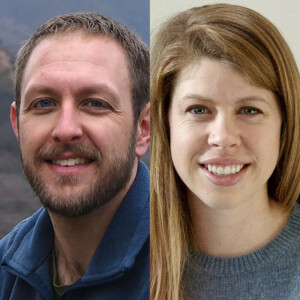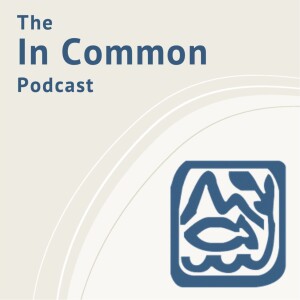
IJC#10: Picking a bone with Elinor Ostrom? A conversation with Landon Yoder & Courtney Hammond Wagner
 2022-12-05
2022-12-05
IJC#10: Picking a bone with Elinor Ostrom? A conversation with Landon Yoder & Courtney Hammond Wagner
Listen to a conversation that Frank van Laerhoven had with Landon Yoder and Courtney Hammond Wagner.
Together with Kira Sullivan-Wiley and Gemma Smith, Landon and Courtney co-authored a recent IJC publication entitled The Promise of Collective Action for Large-Scale Commons Dilemmas: Reflections on Common-Pool-Resource Theory, an article that reflects on how to apply Ostrom’s design principles to larger-scale and more complex cases than the commons cases that we typically read about.
Their proposition is that there is an over-emphasis on using Ostrom’s design principles diagnostically. They argue that as the environmental challenges that we face today differ from the ones that the design principles were arguably developed for, we need more attention for building theoretical understanding of how collective action can contribute to solving larger-scale challenges where many problems intersect.
Landon is affiliated with the School of Public and Environmental Affairs (SPEA) at Indiana University, Bloomington. He holds a Ph.D. from the Department of Geography from that same university. His work combines both social and natural science data and spatial analysis to examine how biophysical conditions, social dynamics, and institutional arrangements jointly influence environmental change.
Courtney received a Ph.D. in Natural Resources from the University of Vermont, and worked as a postdoctoral scholar in sustainable groundwater at Stanford. She now works for the United States Department of Agriculture (USDA). Courtney’s research broadly aims to understand how we design incentives, rules and policies to collectively change behavior in water resource dilemmas to improve community well-being and ecological outcomes.
In case you want to learn more about topics akin to the topic discussed in this episode, may we suggest you check out some of the other titles in the International Journal of the Commons that also look at, for example:
- Orazgaliyev, S., & Araral, E. (2019). Conflict and cooperation in global commons: Theory and evidence from the Caspian Sea. International Journal of the Commons, 13(2).
- Paavola, J. (2008). Governing atmospheric sinks: the architecture of entitlements in the global commons. International Journal of the Commons, 2(2).
- Stern, P. (2011). Design principles for global commons: Natural resources and emerging technologies. International Journal of the Commons, 5(2).
And of course, you should check out the special issue introducing the Social-ecological systems meta-analysis database (SESMAD) project, put together by Michael Cox. This project is guided by the following research question: can the variables found to be important in explaining outcomes on small-scale systems be scaled up to explain outcomes in large-scale environmental governance?
More Episodes
 2022-04-18
2022-04-18
 425
425
 2022-04-11
2022-04-11
 421
421
 2022-04-04
2022-04-04
 460
460
 2022-03-14
2022-03-14
 621
621
 2022-03-04
2022-03-04
 276
276
 2022-02-28
2022-02-28
 648
648
 2022-02-18
2022-02-18
 324
324
 2022-02-07
2022-02-07
 783
783
 2022-01-31
2022-01-31
 440
440
 2022-01-24
2022-01-24
 383
383
 2022-01-18
2022-01-18
 658
658
Create your
podcast in
minutes
- Full-featured podcast site
- Unlimited storage and bandwidth
- Comprehensive podcast stats
- Distribute to Apple Podcasts, Spotify, and more
- Make money with your podcast
It is Free
- Privacy Policy
- Cookie Policy
- Terms of Use
- Consent Preferences
- Copyright © 2015-2024 Podbean.com





